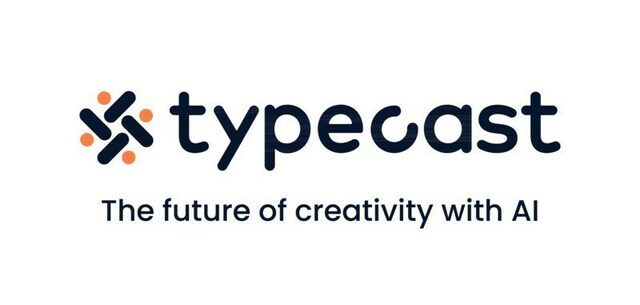TL;DR:
- Typecast introduces Cross-speaker Emotion Transfer, a groundbreaking text-to-speech innovation.
- This technology allows users to apply emotions from one voice to another, preserving the speaker’s identity.
- It overcomes limitations in emotional speech synthesis, enabling natural emotion transfer.
- Typecast’s AI-driven approach uses big data to understand and replicate emotional expressions.
- The My Voice Maker feature empowers users to replicate emotional styles, reducing the cost and time associated with human actors.
Main AI News:
Typecast, the innovative startup behind AI-powered virtual actor service Typecast, has unveiled its latest breakthrough in text-to-speech technology: Cross-speaker Emotion Transfer. This cutting-edge advancement builds upon the foundation laid by Typecast’s unique emotional style control feature, enabling users to imbue their own voices with emotions drawn from other speakers. This revolutionary approach is detailed in the paper “Cross-speaker Emotion Transfer by Manipulating Speech Style Latents,” recently accepted by the prestigious IEEE International Conference on Acoustics, Speech, and Signal Processing.
This groundbreaking technology will be exclusively available through Typecast, offering consumers an unparalleled level of creative control. In addition to this, Typecast has also introduced the My Voice Maker feature, which allows users to replicate their voices using minimal data. The availability of these cutting-edge capabilities will be tailored to meet the diverse needs of consumers, ushering in a new era of depth and possibilities for AI actors.
AI Actors Redefined
“AI actors represent the future of content creation, with their ability to expedite production, reduce costs, and broaden distribution horizons,” notes Taesu Kim, co-founder and CEO of Typecast. “However, the challenge has always been their limited emotional range compared to human actors. Typecast has cracked the code with cross-speaker emotion transfer, made accessible through the My Voice Maker feature. Now, anyone can harness AI actors with genuine emotional depth, using just a small voice sample.“
A Paradigm Shift
Conventional emotional speech synthesis, the backbone of AI actors, demands that all training data be labeled with specific emotions. This approach poses significant challenges, as it necessitates labeled data for every emotion across all trained speakers, often leading to inaccuracies due to the elusive nature of emotions.
Historically, cross-speaker emotion transfer has fallen short, resulting in unnatural emotional expressions when delivered by a speaker who lacks the original emotional context. Furthermore, controlling emotion intensity has proven difficult, limiting practical applications.
Typecast’s latest approach to emotional speech synthesis transcends these limitations, offering cross-speaker emotion transfer, emotion intensity control, and few-shot emotion transfer simultaneously. This groundbreaking technology now allows for remarkably natural emotion transfer while preserving the speaker’s identity. Users can effortlessly infuse a snippet of their voice with a wide range of emotions and intensities, maintaining the unique qualities of their own voice in AI actors.
Emotional Boundaries Reimagined
Typecast’s pioneering technology leverages the power of artificial intelligence to learn from vast datasets, eliminating the need for extensive voice recordings. By analyzing diverse sources such as audiobooks and other available resources, AI algorithms gain a comprehensive understanding of a broad spectrum of emotional expressions.
This achievement holds immense significance as it removes the time-consuming and laborious nature of capturing various emotions through voice recordings. With Cross-Speaker Emotion Transfer, Typecast empowers individuals who may have lacked the resources to express different emotions with their voices.
Preserving Identity
One of the most remarkable aspects of Typecast’s innovation is its ability to maintain the unique identity of the target speaker. Every individual possesses a distinct vocal signature that reflects their personality and individuality. Cross-Speaker Emotion Transfer now enables users to infuse their voices with diverse emotional styles while retaining their authentic sound. This groundbreaking advancement ensures that transferred emotions seamlessly harmonize with the target speaker’s natural voice, creating an authentic and fluid experience.
Harnessing the Power of Big Data
Typecast’s use of big data to train its AI models showcases the incredible potential of machine learning. By analyzing vast quantities of recorded human voices, the system can understand emotional patterns, tones, and inflections. This enables the AI to accurately emulate and transfer emotions, adapting them to the specific characteristics of the target speaker’s voice. The result is a highly personalized and natural emotional expression that resonates with authenticity.
A World of Possibilities
AI actors have a broad spectrum of applications, from YouTube shorts and corporate presentations to voiceovers for feature films. They offer substantial cost and time savings compared to human actors. With the My Voice Maker feature, users can effortlessly select emotional speech styles recorded by others and apply them to their own voices, all while preserving their unique vocal identity. Even those who have not recorded various emotional speech types can benefit from this transformative technology, enabling them to convey a range of emotions with just a five-minute voice recording.
Imagine a world where a renowned voice actor records a single tone of her voice, and Typecast can then infuse someone else’s emotions into it, breathing life into scripts with minimal demand on the actor. This is the remarkable future that Typecast’s Cross-Speaker Emotion Transfer has ushered in, reshaping the landscape of AI-driven content creation.
Conclusion:
Typecast’s Cross-speaker Emotion Transfer marks a significant advancement in AI-driven content creation. This innovation has the potential to disrupt the market by offering an efficient and cost-effective solution for producing emotionally rich content with AI actors. As the technology evolves, it may lead to broader adoption and increased competitiveness in the content creation industry.

